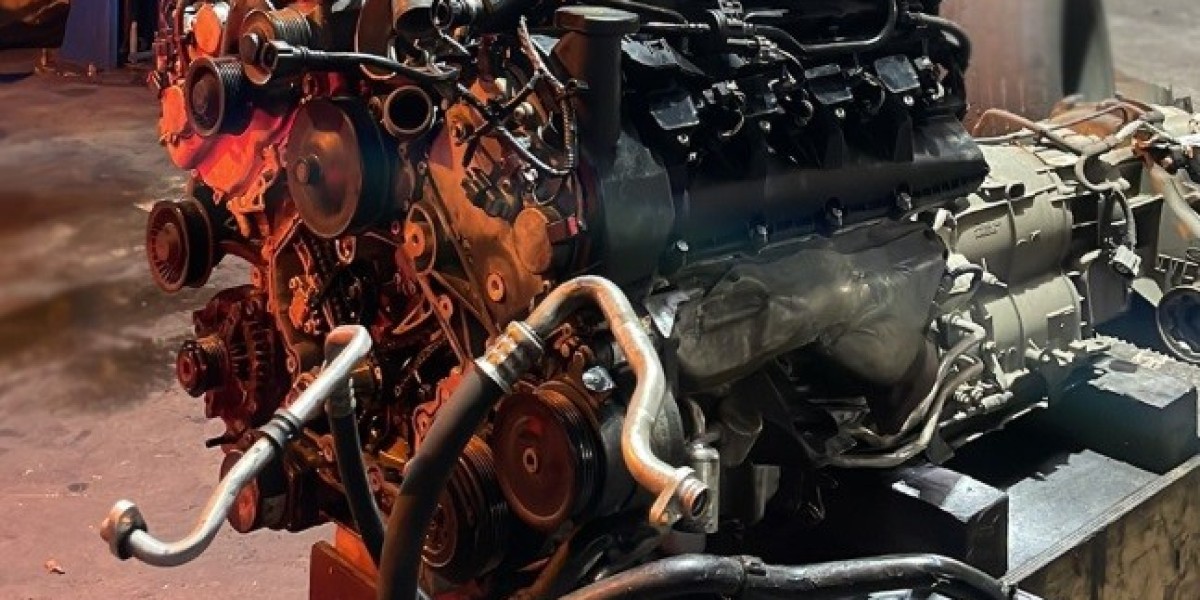When it comes to luxury SUVs, few brands carry the prestige and performance of Range Rover. Known for blending off-road capability with premium comfort, Range Rover vehicles are admired worldwide. At the heart of this reputation lies the Range Rover engine—a powerhouse designed to deliver smooth performance on highways, incredible torque for towing, and rugged durability on challenging terrains.
In this article, we’ll explore the different types of Range Rover engines, their key features, common issues, and maintenance tips to keep them running at peak performance
Why the Range Rover Engine Stands Out
The Range Rover engine is built with a unique balance of luxury and strength. Unlike standard SUV engines, Range Rover powertrains are engineered for:
- High torque output for off-road driving.
- Strong towing capacity (up to 8,200 pounds depending on the model).
- Advanced technology, including turbocharging and hybrid systems.
- Quiet refinement—delivering smooth acceleration without sacrificing comfort.
This combination ensures that drivers enjoy both urban luxury and adventure-ready performance.
Types of Range Rover Engines
1. Petrol Engines
Range Rover petrol engines are known for their smooth acceleration and high horsepower. Popular options include:
- 3.0L inline-six with mild hybrid technology – balances power with fuel efficiency.
- 5.0L V8 supercharged engine – delivers thrilling performance, with up to 518 hp.
These petrol engines are ideal for drivers who want a responsive SUV with plenty of speed and refinement.
2. Diesel Engines
In many markets, diesel Range Rover engines are popular for their fuel efficiency and torque. These engines are excellent for towing heavy loads and long-distance driving. They often deliver better fuel economy than petrol engines.
3. Hybrid Engines
To meet global demand for eco-friendly vehicles, Range Rover has introduced plug-in hybrid (PHEV) engines. These combine a petrol engine with an electric motor, providing:
- Reduced emissions.
- Short all-electric driving range (around 30 miles).
- Improved fuel economy.
4. All-New Electric Powertrains (Upcoming)
Land Rover is working on fully electric Range Rovers, expected to launch in coming years. These will continue the brand’s tradition of performance while aligning with sustainability goals.
Common Range Rover Engine Problems
Even with their engineering excellence, Range Rover engines are not without issues. Some common problems include:
- Oil Leaks
- Often caused by gasket or seal wear.
- Can lead to reduced lubrication and engine damage if not fixed.
- Overheating
- Usually linked to coolant system failures.
- Regularly checking coolant levels can prevent this.
- Timing Chain Issues
- On some models, timing chain tensioners may fail.
- This can cause rattling noises and poor performance.
- Turbocharger Failures (Diesel Engines)
- Excessive wear or poor oil circulation may cause turbo problems.
- Electrical and Sensor Malfunctions
- As modern Range Rover engines rely heavily on electronics, faulty sensors can trigger warning lights or affect performance.
? These problems highlight the importance of routine maintenance and using genuine Range Rover engine parts.
Maintenance Tips for Range Rover Engines
To keep your Range Rover engine reliable, follow these expert tips:
- Regular Oil Changes: Use manufacturer-approved oils to ensure smooth lubrication.
- Check Coolant Levels: Prevent overheating by monitoring coolant and topping up when needed.
- Replace Air and Fuel Filters: Ensures maximum efficiency and protects internal components.
- Inspect Belts and Timing Chains: Replace before failure to avoid costly damage.
- Use Genuine Range Rover Engine Parts: Aftermarket parts may compromise performance and reliability.
- Professional Diagnostics: Modern engines need advanced tools—regular checks at a Land Rover specialist are recommended.
Why Choose Genuine Range Rover Engines and Parts
Whether you’re replacing a faulty engine or upgrading, choosing genuine Range Rover engines ensures:
- Compatibility with your specific model.
- Warranty protection.
- Maximum performance and efficiency.
- Longer lifespan compared to aftermarket alternatives.
For enthusiasts restoring an older model, reconditioned Range Rover engines are also available. These are rebuilt to manufacturer standards, offering reliability at a lower cost.
The Future of Range Rover Engines
With the automotive industry shifting toward sustainability, Range Rover is evolving its engines to meet emission regulations and customer demand for greener vehicles. The future lineup includes:
- Fully electric Range Rover SUVs.
- Improved hybrid engines with longer electric ranges.
- Smarter engine management systems for efficiency and performance.
This ensures the Range Rover legacy of luxury and power continues, while adapting to the needs of modern drivers.
Conclusion
The Range Rover engine is more than just a power source—it’s the backbone of the brand’s reputation for luxury, strength, and versatility. From powerful V8 petrol engines to efficient hybrids, Range Rover continues to set the standard for premium SUV performance.
By understanding the different engine types, recognizing common issues, and following proper maintenance, you can keep your Range Rover running smoothly for years. Whether you’re a daily commuter, off-road adventurer, or luxury enthusiast, the Range Rover engine delivers an unmatched driving experience.
? If you’re considering repairs, replacements, or upgrades, always choose genuine Range Rover engines and parts to ensure peak performance and reliability.







